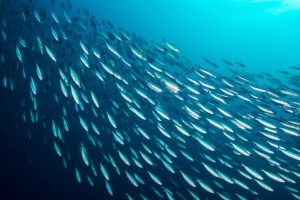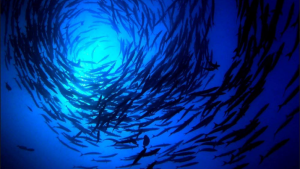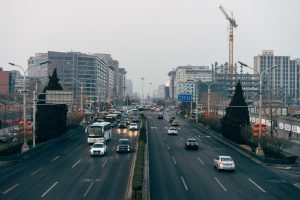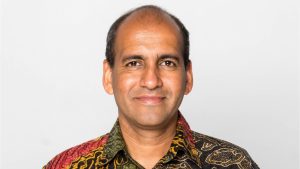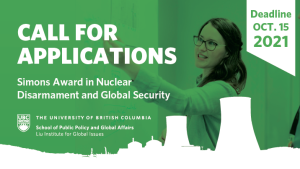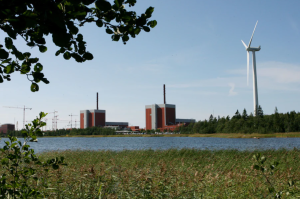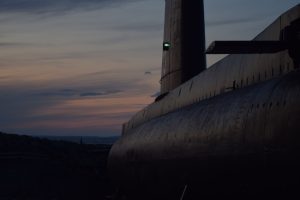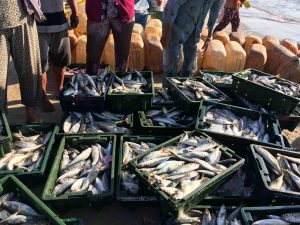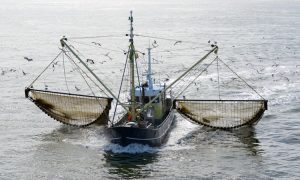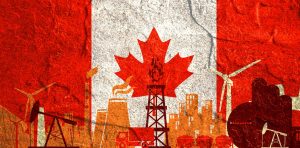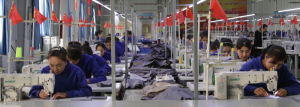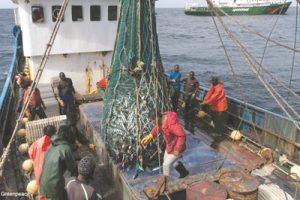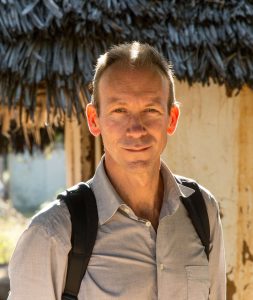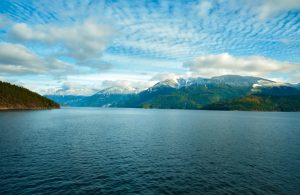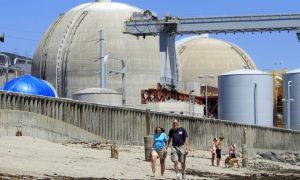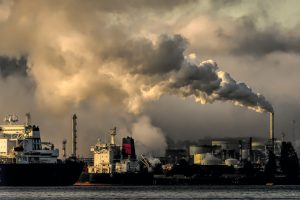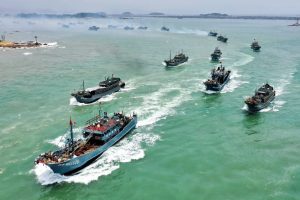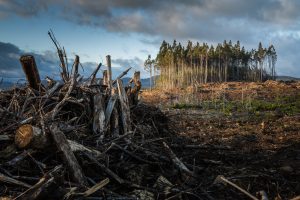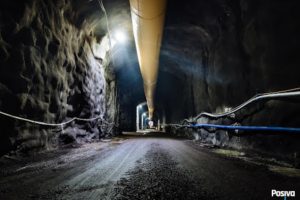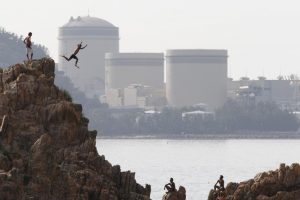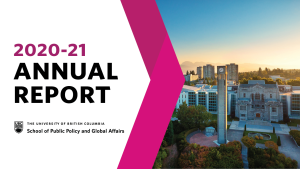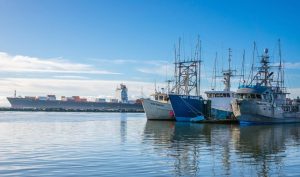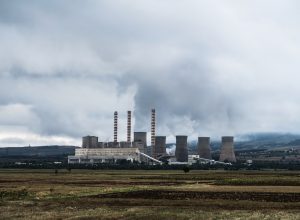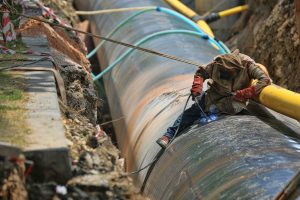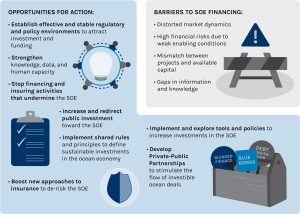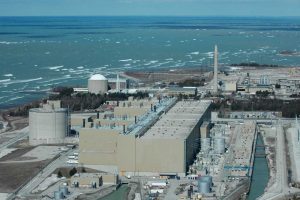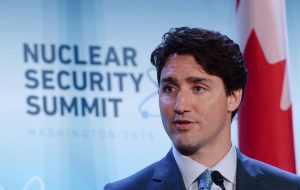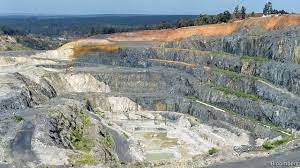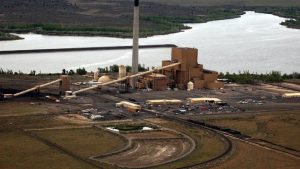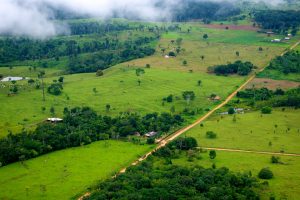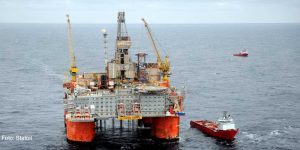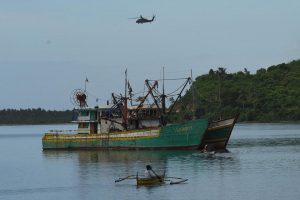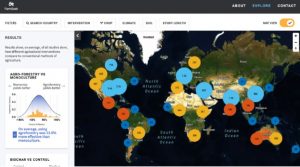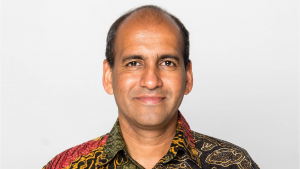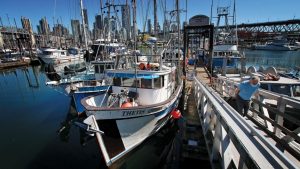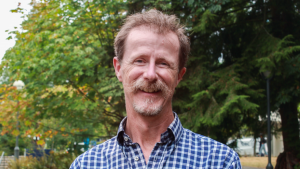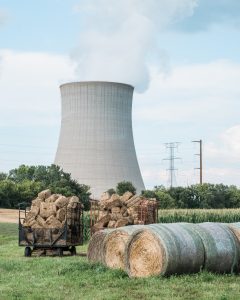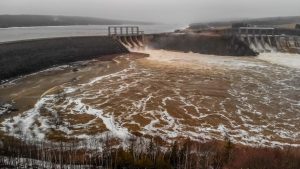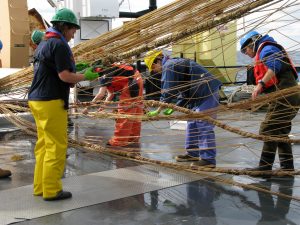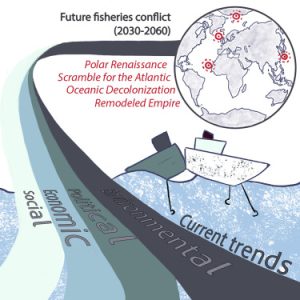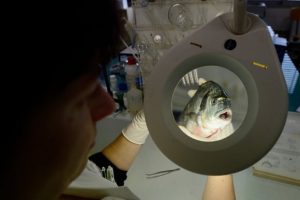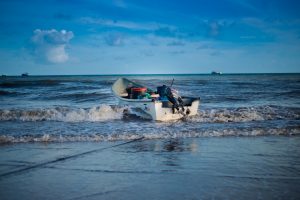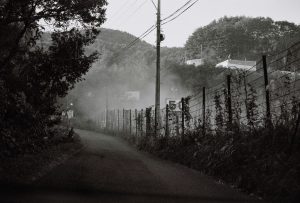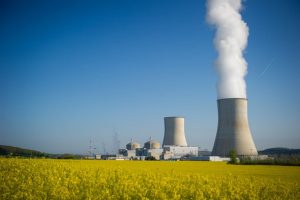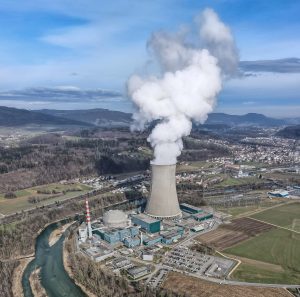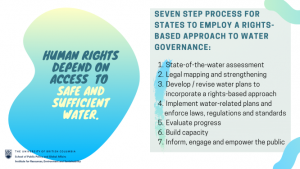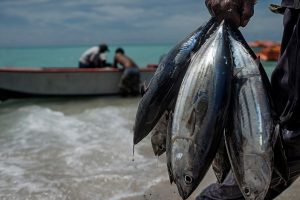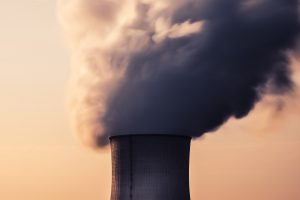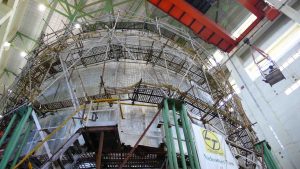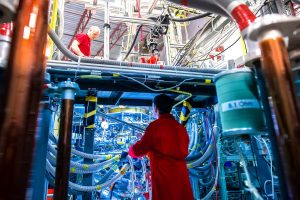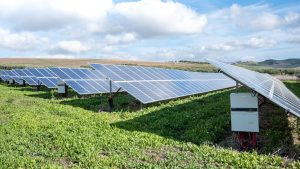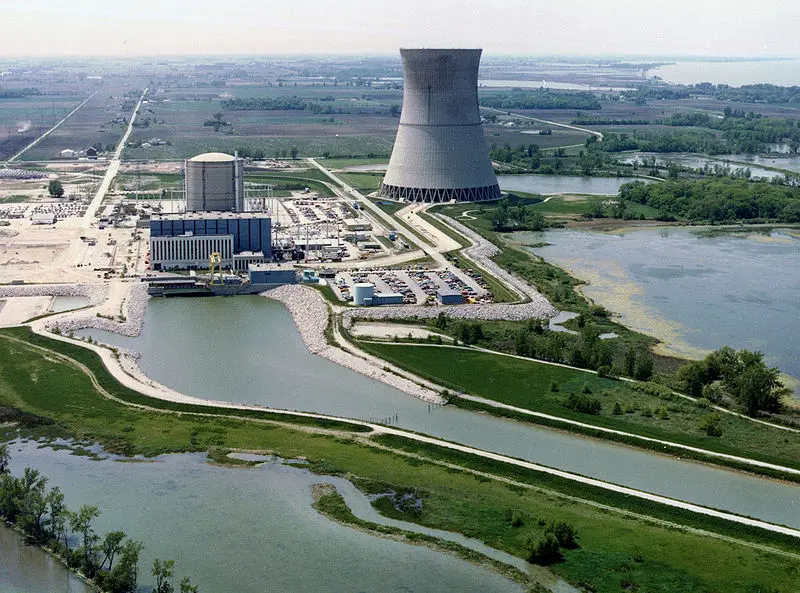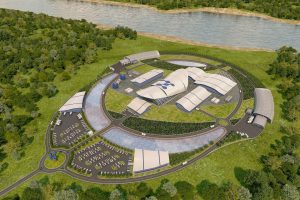Under New Emissions Plan, B.C. Accelerates Phase-Out of Gas-Powered Cars
The B.C. government has released the new CleanBC Roadmap to 2030, outlining B.C.’s climate plan to reduce greenhouse gas emissions. SPPGA Professor George Hoberg commends the ambitions but criticizes the lack of clarity surrounding capping emissions on oil and gas utilities.
Doubling of Global Demand for Aquatic Foods Calls for a ‘Blue Food Revolution’ to Tackle Climate Change and Malnutrition
In this podcast episode with Kelly Cutrara, Professor Rashid Sumaila (SPPGA; UBC Oceans) discusses how the increasing global demand for aquatic foods calls for a ‘blue food revolution’ to help combat climate change and malnutrition.
New Book: Infinity Fish
Professor Rashid Sumaila (SPPGA; IOF) authors a new book titled Infinity Fish, a science-based reference that explains the economic and ecological benefits of restoring marine ecosystems and sustaining ocean resources.
Analysts Say China on Track to Meet Carbon Targets Despite Challenges
In anticipation for the COP26 United Nations Climate Change Conference, the world is following China closely as they are the largest global polluter. Professor Yves Tiberghien (SPPGA Faculty Associate; Political Science) discusses China’s accomplishments in sustainability and states that they are on track to meet carbon targets despite current challenges.
Ramana, Makhijani: Look Before You Leap on Nuclear
Professor Ramana explains why the proposal to build a Natrium nuclear reactor in Wyoming is unlikely to be commercially viable, taking into account the long history of failed sodium cooled reactor projects around the world (Paywall).
Call for Applications: 2021 Simons Award in Nuclear Disarmament and Global Security
Undergraduate and graduate students will receive $1,000 and $1,500 respectively for their successful research paper or product on topics related to nuclear disarmament and/or global security.
Chromatic: Ten Meditations on Crisis in Art and Letters
Read this new collection of essays and illustrations from the Peter Wall Institute for Advanced Studies, offering 10 illustrated meditations on crisis from the 2020 Wall Scholars. Professor Ramana writes on the nuclear crisis in Japan at a time of global upheaval.
Pay Close Attention to Russia’s Small Neighbor on Energy
Achieving carbon neutrality is a matter that’s the source of headache for many politicians. But if there’s one country with clear and ambitious energy targets, it’s Finland. Former Postdoctoral Fellow Vincent Ialenti comments on Finland’s “mankala model”.
UBC Sending Delegation of Eight to COP26
UBC President Santa J. Ono announced the successful applicants that will represent UBC as official observers at the 26th United Nations Climate Change Conference of the Parties (COP26) in Glasgow this November. Among the eight delegates selected is Professor Rashid Sumaila (SPPGA; UBC Oceans).
A US-UK Submarine Deal Triggers Nuclear Fears Down Under
The US, UK, and Australia agreed on a tripartite deal (AUKUS) to supply a nuclear-powered submarine to Australia. Professor M. V. Ramana raises concerns about the partnership as it will increase tensions with China and can escalate the ongoing arms race.
Renewed WTO Talks on Subsidies Zero in on Overcapacity, Overfishing
The World Trade Organization is again negotiating an agreement to end harmful fishery subsidies after more than two decades on the matter. Professor Rashid Sumaila (SPPGA; UBC Oceans) stresses that it is crucial for negotiators to continue working on the issues holding up the agreement.
Fish Consumption to Double by 2050, According to New Report
A Blue Food Assessment report estimates global consumption of fish and shellfish will almost double by 2050. Professor Rashid Sumaila (SPPGA & UBC Oceans) advises blue food exporters to carefully evaluate the trade-off between export revenues and domestic nutrition.
Nuclear Power: Why Molten Salt Reactors Are Problematic and Canada Investing in Them Is a Waste
One of the beneficiaries leading-up to the federal election has been the nuclear energy industry, specifically molten salt reactors. Professor Ramana states that molten salt reactors are problematic and that Canada investing in them is a waste.
China’s Cotton Subsidies Immiserate Farmers in the World’s Poorest Countries
“Cotton subsidies have long been seen as a symbol of the injustice in international trade”, writes Professor Kristen Hopewell. In China, cotton subsidies give farmers an artificial advantage in global markets while devastating farmers in low-income countries.
Fight ‘Galamsey’ at High Sea!
Dr. Rashid Sumaila, (SPPGA; UBC Oceans) discussed the cost of illicit trade in West Africa marine resources. He says “resources to tackle illegal and unreported fishing, especially those that fuel illicit trade, need to be pulled at both at regional and continental levels.”
Policy Matters 22 – Special Issue on Environmental Defenders
Professor Philippe Le Billon (SPPGA; Geography) co-edited a three-volume issue of IUCN’s Policy Matters on the topic of environmental defenders and biodiversity conservation.
Are Vietnamese Fishers Poachers? The Reality Is Far More Complex Than That.
For Vietnamese fishers, their fate is now largely charted not just by their country’s fishing regulations but also by that of their neighbors in the South China Sea. Rappler cited a study co-authored by Professor Rashid Sumaila (SPPGA & UBC Oceans), which found that destructive fishing practices have decimated the East Sea’s fish stocks since the 1950s.
Asia’s Wealthiest Man Is Going Green but Still Gets Rich off Oil
SPPGA Professor Ramana says it would be hard for Reliance Industries, which owns the world’s largest oil refining complex, to dissociate from the emissions-heavy fossil fuel business despite their efforts to build more environmentally friendly products.
Is There a Nuclear Option for Stopping Climate Change?
A rapidly warming climate has people questioning whether nuclear power is a viable option for decarbonisation. Director Allison Macfarlane warns that the construction time for nuclear plants is much longer compared to renewable projects and America “can’t afford to wait that long” (Subscription).
Professor George Hoberg Publishes New Book: “The Resistance Dilemma: Place-Based Movements and the Climate Crisis”
What are the risks around a so-called “resistance dilemma” in a world hungry for clean and renewable energy? SPPGA Professor George Hoberg’s new book, “The Resistance Dilemma: Place-Based Movements and the Climate Crisis,” is a fresh take on the climate movement and its shift from lobbying to blocking new fossil fuel infrastructure.
Fossil Fuels, Climate Change, and the COVID-19 Crisis: Pathways for a Just and Green Post-Pandemic Recovery
A climate-positive COVID-19 recovery can accelerate the energy transition away from fossil fuels. Professor Philippe Le Billon (SPPGA; Geography) suggests that most fossil fuel producers are more likely to take on a ‘dirty’ recovery path out of the pandemic than a ‘green’ one.
South China Sea, Xinjiang Muddy Water of Fishing Subsidies Debate as WTO Faces ‘Crucial Test’
The World Trade Organization hopes to conclude negotiations over fishing subsidies this year after a twenty-year impasse. SPPGA Professor Kristen Hopewell was quoted on this article on environmentally damaging fisheries subsidies worth $35 billion, with China handing out the most (Subscription).
The Art of Pondering Earth’s Distant Future
“We were born on a damaged planet careening toward environmental collapse. Yet our intellects are poorly equipped to grasp the scale of the Earth’s ecological death spiral.” As an anthropologist, Postdoctoral Fellow Vincent Ialenti shows us how thinking across time can help us become more responsible planetary stewards and foster empathy across generations.
Transparency in Environmental and Resource Governance: Theories of Change for the EITI
Professor Philippe Le Billon (SPPGA; Geography) co-authors article discussing how transparency is now a core principle in environmental and resource governance and identifies three “Theories of Change” for governance-by-disclosure and applies them to the Extractive Industries Transparency Initiative.
We’ve Been Here Before: Wyoming Nuclear Project Echoes of Past
After state officials unveiled Wyoming’s Natrium nuclear project, industry critics are doubtful plans will follow through. Director Allison Macfarlane warns that “we can’t pin our hopes on [nuclear] as the thing that’s going to get us out of the next 20 [crucial] years.”
Another 30 Years to Go – the Final Storage of High-level Radioactive Waste
Read the latest interview with SPPGA Director Allison Macfarlane, where she discusses the worldwide search for a nuclear repository, the factors that determine a successful site search and the current United States’ stalemate on this issue.
MPPGA Global Policy Project Catalogue
We’ve launched the full catalogue of Global Policy Projects from UBC’s Master of Public Policy and Global Affairs students, showcasing their work with clients on real-world policy challenges. Learn about each project, browse policy reports, and view presentations.
Environmental Defenders Deadly Struggles for Life and Territory
This book, edited By Mary Menton and Philippe Le Billon, is about environmental defenders and the violence they face while seeking to protect their land and the environment.
SPPGA Releases 2020-2021 Annual Report
The UBC School of Public Policy and Global Affairs has published its 2020-2021 annual report which features our faculty’s research projects, policy engagement, and notable achievements, student and alumni profiles, and our various convening and learning activities.
Ethical Considerations for Research on Small-Scale Fisheries and Blue Crimes
Crimes at sea—blue crimes—can have devastating impacts on small-scale fishing communities. Professor Philippe Le Billon (SPPGA; Geography) discusses the risks and ethical challenges faced by a blue crimes research agenda to improve rather than worsen the plight of small-scale fishers.
2021 Global Policy Project Symposium Highlights
As a defining element of UBC’s professional Master of Public Policy and Global Affairs (MPPGA) curriculum, the Global Policy Project (GP2) provides the opportunity for MPPGA students to engage with policy makers and civil society organizations on a real-world policy challenge, in Canada and around the world. Learn more on the Global Policy Project page. On April […]
Developer Pulls Plug on Keystone XL Pipeline
SPPGA Professor George Hoberg discusses with Global News Morning BC what the cancellation of the contentious crude oil pipeline project means for hopes of a net-zero future.
Can Joe Biden Kick-Start Stalled Progress on Ocean Conservation?
With the WTO and Biden administration prioritizing environmental concerns, Professor Rashid Sumaila (SPPGA; Institute for the Oceans and Fisheries) is optimistic that an agreement to ban harmful fisheries can be reached in the near future.
Pipeline Workers Are Scaring Indigenous Elders Away from Their Own Lands
Indigenous people are experiencing a rise in harassment and intimidation cases amid pipeline battles, but Professor Sheryl Lightfoot (SPPGA; Political Science; FNIS) notes that tensions caused by lack of consultation between residents and governments is nothing new.
Conflict Minerals and Battery Materials Supply Chains: A Mapping Review of Responsible Sourcing Initiatives
Responsible mineral sourcing is a major issue on the global sustainability agenda. Professor Philippe Le Billon (SPPGA; Geography) co-authors this article, discussing the approaches that responsible minerals sourcing initiatives have taken, focusing on conflict minerals as well as metals and minerals needed for renewable energy technologies in a transition to a low carbon economy.
Chickpea of the Sea
With heavy carbon-intensive practices impacting the fishing industry, plant-based alternatives could be the future of seafood. Professor Rashid Sumaila (SPPGA & UBC Oceans) warns that we need to take responsibility now lest ocean biodiversity disappears.
Oil, Fisheries and Coastal Communities: A Review of Impacts on the Environment, Livelihoods, Space and Governance
Professor Philippe Le Billon (SPPGA; Geography) co-authors this article, providing a review of the effects of oil development in relation to the environment, small-scale fisheries and coastal disputes over territory and infrastructure, and ocean and coastal governance processes.
Plan to Import Nuclear Waste Raises Larger Questions about Plans to Deal with Domestic Nuclear Waste
Following news that former prime minister Jean Chrétien was part of a secret project to set up a radioactive nuclear waste repository, officials have declared that the proposal is dead. But Professor Ramana and Kerrie Blaise say that the proposal raises ethical questions about moving nuclear waste or producing it in the first place (Subscription).
Geeking out on Farming
Want to know how a certain farm intervention affects yields in your part of the world? Zia Mehrabi & Professor Navin Ramankutty (SPPGA & UBC IRES) worked together to create FarmGeek, an online tool that will help you do just that.
Le Canada Mise sur le Nucléaire pour Réduire les GES
To meet its goal of climate neutrality by 2050, Canada has invested more than $75 million into the development of small modular reactors (SMRs). Professor Ramana weighs in on the conversation (French).
De-Politicising Seawater Desalination: Environmental Impact Assessments in the Atacama Mining Region, Chile
New research from Professor Nadja Kunz (SPPGA; NBK Institute of Mining Engineering) and others identifies how EIAs, tools meant to assess and mitigate negative socio-environmental outcomes, can be utilized in ways that enable them, such as in the case with desalinization in Chile.
Petits Réacteurs Nucléaires: Que Fera-t-On des Déchets
SPPGA Director Allison Macfarlane speaks on the feasibility of small modular nuclear reactors and waste management in wake of New Brunswick’s plan for deployment of SMRs (Article in French).
Japan: UN Experts ‘Deeply Disappointed’ by Decision to Discharge Fukushima Water
Three independent UN human rights experts, including Professor David Boyd (SPPGA; IRES) expressed deep regret over Japan’s decision to discharge potentially radioactive Fukushima nuclear plant water into the ocean, impacting millions across the Pacific.
Former NRC Chair Questions Economic Feasibility of New Nuclear in US
“Without further aid from Congress and the White House, the prospects for the U.S. nuclear industry will dwindle in the face of cheaper resources that are getting built faster than new nuclear generators,” says SPPGA Director Allison Macfarlane.
Mankala Chronicles: Nuclear Energy Financing and Cooperative Corporate Form in Finland
Drawing on 32 months of interview-based ethnographic fieldwork, Postdoctoral Fellow Vincent Ialenti examines Finland’s “mankala” nuclear energy companies through the lens of anthropological theories of corporate form.
More Nuclear Reactors (SMRs): A Bad Investment for New Brunswick
“One cannot have both: nuclear power and sustainable renewable energy.” Professor Ramana and co-authors makes a case against SMRs for New Brunswick.
China’s Gone Fishing
China is the world’s largest exporter of seafood – and its largest consumer. After decades of overfishing, the nation is now looking for seafood in open and contested waters. Professor Rashid Sumaila (SPPGA & UBC Oceans) has more.
Why Small Modular Nuclear Reactors Won’t Help Counter the Climate Crisis
SPPGA Professor Ramana and others analyze the economies of scale, mass manufacturing, and the track record of small modular nuclear reactors to determine whether SMRs will help counter the climate crisis.
Seafood Trawl Fishing May Release as Much Carbon as Air Travel
In response to a study that suggests that seafloor trawl fishing releases as much carbon as air travel, Professor Rashid Sumaila (SPPGA & Institute for the Oceans and Fisheries) adds that we are putting too much pressure on our natural systems.
Connecting Peaces: TBCAS and the Integration of International, Social, and Ecological Peace
Transboundary Conservation Areas (TBCAs) have been heralded for their potential to foster peaceful relations, biodiversity conservation, and sustainable development, yet critics point out their failures. Professor Philippe Le Billon (SPPGA; Geography) suggests that TBCAs’ failings result in part from a lack of connection between three intertwined types of peace.
Exploring the Future of Fishery Conflict Through Narrative Scenarios
Disruptive changes in our global ocean and fisheries have sparked warnings of an increase in fishery conflicts. Professor Philippe Le Billon (SPPGA; Geography) co-authors this article, considers how multiple causal factors can drive conflict by using a scenario approach.
Cleaning Mineral Supply Chains? Political Economies of Exploitation and Hidden Costs of Technical Fixes
Professor Philippe Le Billon (SPPGA; Geography) examines hidden costs of three prominent mineral supply chain ‘solutions’ that respectively aim to create ‘conflict-free’ minerals, curtail corruption, and reduce mercury pollution.
Bait and Switch: Fish Fraud Rampant Worldwide, New Study Shows
After analysis of mislabeled seafood in various countries, Professor Rashid Sumaila (SPPGA & Institute for the Oceans and Fisheries) says that the worst offenders are those who purposely sell low-value fish in place of more expensive species.
Drawing Lines in the Sand? Paths Forward for Triggering Regulation of Gene-Edited Crops
Researchers are making use of new gene-editing techniques in medicine, bioenergy, industrial biotechnology, and beyond, and the field of crop breeding is no exception. Milind Kandlikar co-authors a study examining this phenomenon.
How to Feed the World & Shrink Our Climate Footprint
On Project Drawdown, Professor Navin Ramankutty shares up-to-date insights on food systems, climate solutions, and the importance of voting and youth climate action.
Corporate Accountability and Diplomatic Liability in Overseas Extractive Projects
Professor Philippe Le Billon (SPPGA; Geography) discusses how activities of multinational mining corporations in the developing world have come under increased scrutiny, and so has the failure of their home governments to regulate the negative impacts of their activities on host communities.
Revealed: Seafood Fraud Happening on a Vast Global Scale
Professor Rashid Sumaila (SPPGA & Institute for the Oceans and Fisheries) discusses “fish laundering” and the economic incentives of selling low-value fish in place of more expensive species, which is often linked to illegal, unreported, and unregulated fishing fleets.
A Deep Dive: Dr. Sumaila on Sustainable Ocean Management in Global Partnership
Taking a deep dive into sustainable ocean management, Professor Rashid Sumaila (SPPGA & Institute for the Oceans and Fisheries) says that global partnership and social, economic, and environmental interdisciplinarity will be essential in solving these global issues.
The Fukushima Accident: Do We Have the Wisdom to Move Forward?
As the 10th anniversary of the Fukushima accident approaches, SPPGA Director Allison Macfarlane discusses how to reconceive the risks of nuclear power plants in the process of transitioning away from the carbon economy.
Small Modular Nuclear Reactors and Net-Zero Carbon Emissions by 2050? The Math Doesn’t Add Up
Although small modular nuclear reactor advocates claim that net-zero carbon emissions are achievable by 2050, SPPGA Professor Ramana argues that the evidence of this is non-existent and highly unlikely.
Small Modular and Advanced Nuclear Reactors: A Reality Check
SPPGA Professor Ramana examines whether small modular and advanced nuclear reactors can solve the problems of nuclear power technology – risks such as accidents, link to proliferation, waste, and economic competitiveness.
A Thin Conception of Time
Discussing SPPGA Postdoctoral Fellow Vincent Ialenti’s book, this article analyzes his idea of a “thin conception of time” where communities, businesses, and individuals live in short time spans; a cacophony progressing from one topic to another.
UN Report: Human Rights and the Global Water Crisis
Professor David Boyd (SPPGA; IRES) recently presented a UN report on the global water crisis, particularly on its disproportionate effects and state/business obligations to ensure safe and sufficient water for all.
China Gives Nuclear Power a Fresh Push in Drive to Go Green
As China plans to invest more in nuclear plants, SPPGA Professor Ramana is surprised that policymakers are persisting on this expensive source of electricity, despite the rest of the world slowing down their investments in nuclear energy.
Briefing Paper: The Proposed Nuclear Reactors (SMRs) for New Brunswick
In a briefing on the two proposed nuclear reactors for New Brunswick, SPPGA Prof Ramana and other experts discuss the cost-analysis of SMRs.
Problems with the Prototype Fast Breeder Reactor
For two decades, the story of India’s Prototype Fast Breeder Reactor is one of rising costs, delays and never-ending promises of commissioning. “Shouldn’t India then stop pursuing the breeder programme?” say Prof Ramana & MPPGA Student Nidhi Sharma.
Escalating Tensions in the South China Sea Could Have Major Implications to the Global Economy
Professor Paul Evans discusses what this could mean for trade, resources, and international relations.
Cleantech: B.C.’s $100-billion Opportunity
SPPGA Adjunct Professor Andrea Reimer talks of a $100-billion opportunity in BC for clean economic growth, with our biggest opportunities being in cleantech.
Incomplete Transitions to Clean Household Energy Reinforce Gender Inequality by Lowering Women’s Respiratory Health and Household Labour Productivity
Complete transition to cooking gas reduces gender inequality by improving women’s respiratory health. Professor Milind Kandlikar’s (SPPGA; IRES) co-written paper says that improving the affordability, supply and reliability of clean fuels should be a key focus.
Brazil’s Angra 3 Nuclear Reactor: A Political Undertaking, Not a Common Good
A questionable move by Brazil’s politicians to resume a costly nuclear energy program in place of cheaper renewables is mired in political corruption, says Carolina Basso. Basso’s article came out of a report she wrote for the Simons Award in Nuclear Disarmament and Global Security.
Big Money, Nuclear Subsidies, and Systemic Corruption
In July, a $60 million bribery and corruption case came to light in Ohio. The guilty party—one of Ohio’s largest utility corporations. For years, the firm lobbied to continue operating its unprofitable nuclear plants, write Professor Ramana and MPPGA Alumna Cassandra Jeffery.
Mini Nuclear Reactors Offer Promise of Cheaper, Clean Power
As nuclear reactor makers pitch smaller, modular systems, SPPGA Professor Ramana says that the basic idea is flawed and that many of these expense reductions could ultimately increase their danger and create new safety risks.

